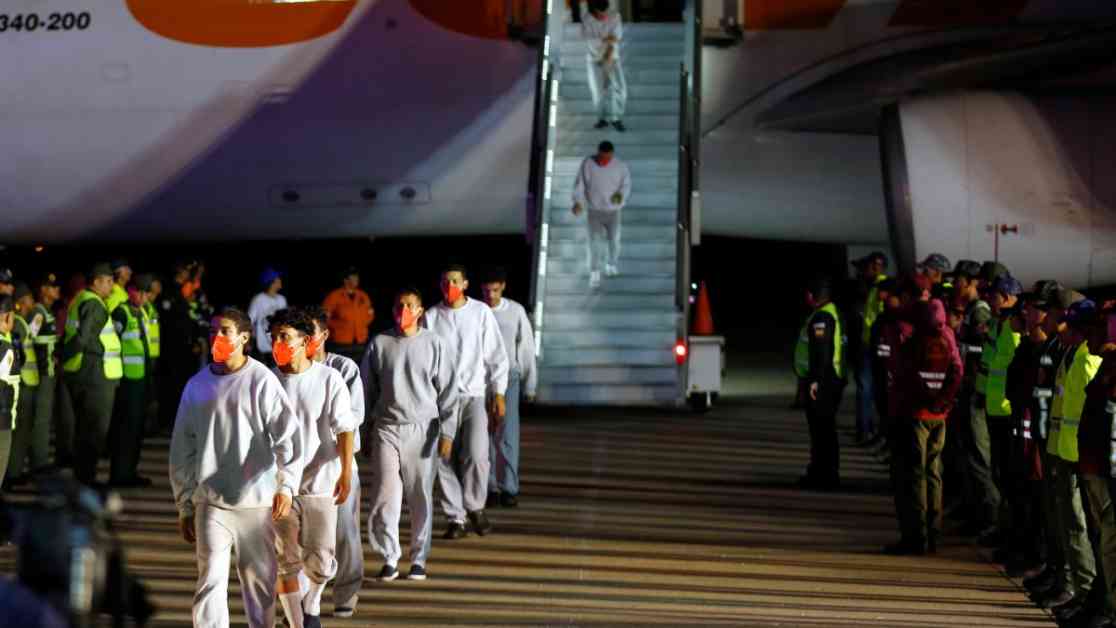Venezuela to Resume Migrant Repatriation After US Deal
Venezuela has announced that it will once again accept repatriation flights from the United States carrying deported nationals, following an agreement reached between the two countries. The decision comes after Venezuelan President Nicolás Maduro suspended flights on March 8 in response to the U.S. Treasury Department’s withdrawal of Chevron’s license to export Venezuelan oil.
Jorge Rodríguez, president of Venezuela’s Assembly and Maduro’s chief negotiator with the U.S., took to social media to share the news. He stated that an agreement has been reached with the U.S. government to resume the repatriation of Venezuelan migrants, with the first flight scheduled for the following day.
“We have agreed with the U.S. government to resume the repatriation of Venezuelan migrants with an initial flight tomorrow, Sunday,” Rodríguez said, emphasizing the importance of ensuring the safe return of Venezuelan nationals to their homeland while protecting their human rights.
In a passionate statement, Rodríguez highlighted the plight of some 250 Venezuelans who were deported to a high-security prison in El Salvador by President Donald Trump’s administration. He stressed that migration should not be treated as a crime and vowed to work tirelessly to bring back all those in need while advocating for the release of Venezuelans detained in El Salvador.
Maduro reaffirmed the agreement during a public event, expressing his commitment to resuming flights to bring back Venezuelan migrants held in U.S. prisons. Additionally, he held the president of El Salvador, Nayib Bukele, accountable for the well-being of the deported Venezuelans, urging their prompt release from captivity.
Trump’s administration claimed that the deportees were affiliated with the Tren de Aragua gang, which the U.S. Department of State has designated as a foreign terrorist organization. The group originated in a prison in Venezuela and has been linked to criminal activities. Despite these allegations, Maduro’s government has been steadfast in its efforts to support deported Venezuelans and facilitate their return to the country.
The Alien Enemies Act, a rarely used 1798 law invoked by Trump, allows the president to imprison and deport non-citizens during wartime. This controversial move has sparked debate and legal challenges, with a federal judge temporarily halting the deportations as flights were already en route.
Understanding the Alien Enemies Act
The Alien Enemies Act, enacted in 1798, grants the president authority to detain and deport non-citizens during times of war. This historic legislation has been rarely utilized throughout U.S. history, prompting questions about its relevance and implications in modern times.
Tren de Aragua, the group at the center of the deportation controversy, has been a focal point of U.S. national security concerns due to its alleged ties to terrorism. The origins of the organization within the Venezuelan prison system underscore the complex nature of transnational criminal networks and their impact on migration patterns.
Despite the lack of concrete evidence linking the deportees to criminal activities in the U.S., the Trump administration has intensified its deportation efforts, leading to a surge in the number of Venezuelans sent back to their home country. This escalating trend has raised concerns about the treatment of deported individuals and the broader implications for U.S.-Venezuela relations.
In conclusion, the ongoing repatriation of Venezuelan migrants highlights the challenges and controversies surrounding immigration policies and cross-border cooperation. As the U.S. and Venezuela navigate these complex issues, the human rights and welfare of deported individuals remain at the forefront of diplomatic discussions and legal proceedings.
The Alien Enemies Act is a rarely used 1798 law which allows the president to imprison and deport non-citizens in time of war. Here’s what you need to know.














